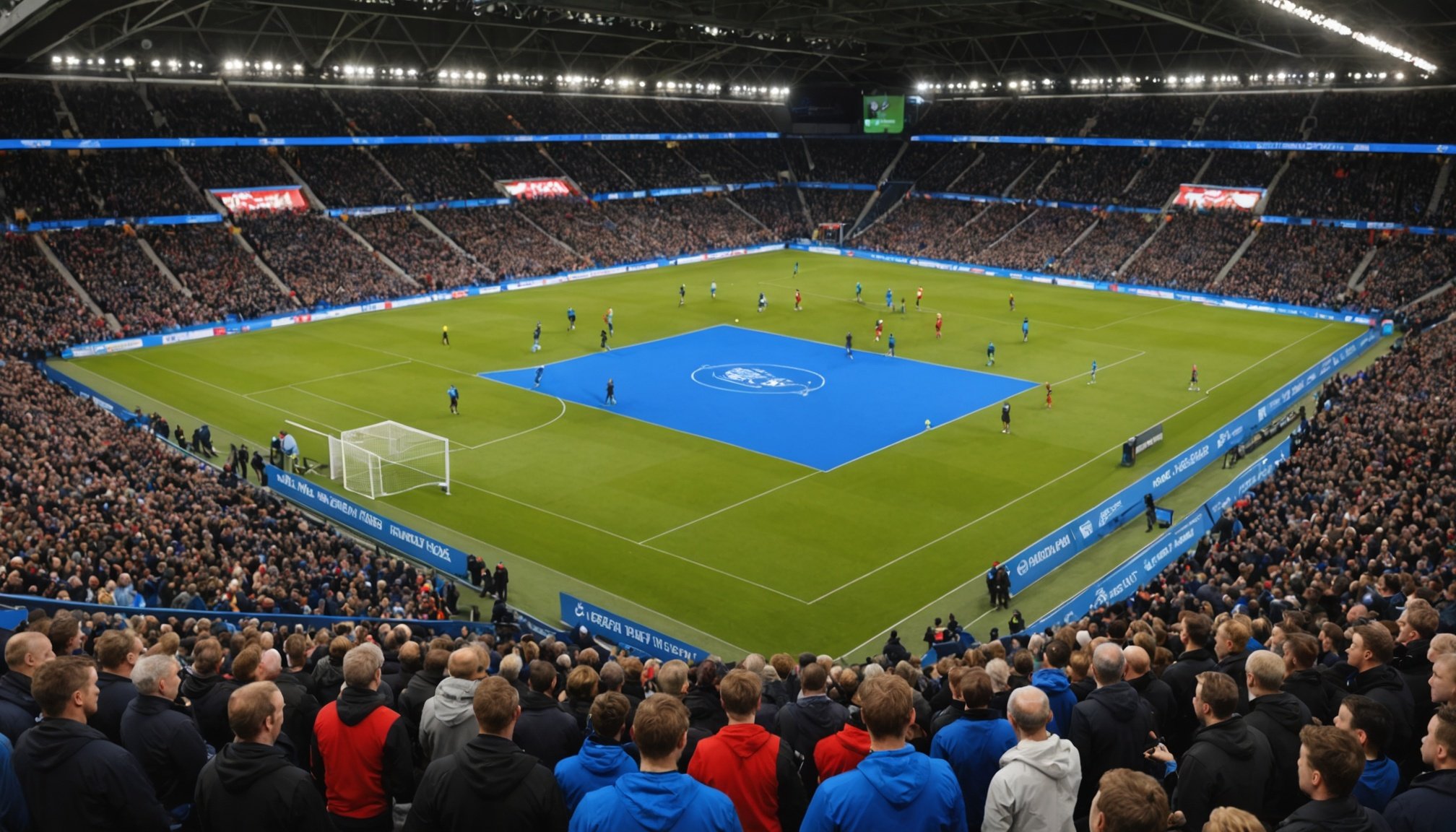Key Upcoming Matches Shaping the UK Sports Landscape
Delving into the upcoming sports fixtures UK, the schedule highlights several major UK matches that carry significant weight for teams and fans alike. In football, key clashes between top Premier League clubs are set to define the title race and influence European qualification hopes. These games often draw national attention due to their high stakes and historic rivalries.
Turning to rugby, the sports calendar includes critical Six Nations encounters, where national pride and tournament success hang in the balance. These fixtures are pivotal not only for the standings but also as preparation for upcoming World Cup campaigns. The intensity and skill displayed guarantee robust spectator engagement and media coverage.
Also to read : Cultivating future leaders: how uk youth sports programs enhance leadership skills in young athletes
Cricket enthusiasts can look forward to county championship showdowns and international test matches on UK soil, with these major UK matches playing a crucial role in player form assessment and team strategies.
The significance of these upcoming sports fixtures UK cannot be overstated. Each fixture represents more than just a game; it shapes club fortunes, influences national team trajectories, and captivates broad audiences who follow the evolving drama across the sports calendar.
Have you seen this : How is the UK preparing for upcoming international sports competitions?
Impact on League Standings and Competition
The outcomes of the upcoming matches will critically shape league standings and could redefine the season’s trajectory. Teams hovering near the top face intense pressure, where a single win or loss can swing momentum in a title challenge or derail championship hopes.
More precisely, matches involving mid-table clubs now impact the promotion and relegation battles significantly. For instance, a victory for a club close to the relegation zone can create vital breathing room, while a defeat tightens competition, intensifying the standings implications for several teams.
Furthermore, results influence qualification for both domestic cup competitions and European tournaments. A win in these fixtures might secure a desirable spot in UEFA competitions, which brings financial rewards and prestige, adding layers of motivation.
In closely contested leagues, even slight point differences can determine whether a team ascends to Europe or drops into more challenging relegation playoffs. Understanding this, clubs adopt strategies based not just on immediate wins but long-term positioning in the league outcomes. This dynamic interplay highlights why every match remains pivotal in shaping the broader competitive landscape.
Influencing Player Performance and Team Strategy
Player form often shifts dramatically in high-stakes matches, where motivation peaks due to increased pressure. Managers recognize this and adjust squad selection accordingly, prioritizing those showing consistent performance or mental resilience. This selective approach enhances team effectiveness by aligning player readiness with crucial game moments.
Team tactics UK vary significantly during pivotal fixtures. Managers frequently adopt flexible formations tailored to exploit opponents’ weaknesses or counteract their strengths. Adapting formations, such as shifting between a 4-3-3 and a 3-5-2, allows for fluidity in both attack and defense, proving essential in tight contests.
Key match performers usually emerge from players who combine technical skill with strategic awareness. These individuals can influence outcomes through critical interventions, such as goals, assists, or defensive blocks. Additionally, the spotlight often falls on emerging talents seizing opportunities or on injured stars making impactful comebacks, injecting fresh energy and experience into team dynamics.
By varying tactics and leveraging player form, teams optimize their chances of success, emphasizing the importance of strategy and mental preparedness in competitive football.
Financial Implications for Clubs and Associations
Matchday revenues are vital to club finances, especially for lower-league teams where ticket sales and hospitality generate a large share of income. Winning or losing key matches can directly impact these revenues, as fans are more inclined to attend games and spend on merchandise when their team performs well. This creates a cycle where positive results boost financial stability, while poor performance risks reducing income.
Broadcasting rights impact league finances substantially. The valuation of TV rights often shifts based on the significance of matches and overall competition quality. Games with higher stakes or featuring top teams attract greater viewership, increasing negotiation power for leagues and boosting revenues.
Sponsorship interests also depend on the visibility and appeal of competitions. Successful clubs benefit from enhanced brand partnerships, directly linked to their on-field success and fan engagement. Financial planning for clubs requires carefully balancing these income streams, forecasting risks from fluctuating matchday attendance and variable broadcasting deals. Understanding these financial dynamics helps clubs optimize their budgets and invest strategically in squad development.
Deepening Fan Engagement and Shaping Sports Culture
Exploring the dynamic relationship between fans and their clubs
Big fixtures in the UK don’t just attract attention; they galvanise local communities and fanbases, creating a powerful shared experience. Supporter behaviour during these matches often shifts from routine fandom to intense emotional investment, fostering stronger bonds within fan culture UK. These events become moments where community identity is reinforced, and local pride can surge.
Social media amplifies this effect significantly. Platforms allow fans to coordinate, celebrate, or commiserate in real time, leading to fan-led initiatives such as charity drives or awareness campaigns linked to matchdays. This digital space also captures and spreads supporter behaviour trends, making fan culture UK more visible and influential beyond the stadium.
Pivotal results in big fixtures can cause shifts in supporter loyalty and the public image of clubs. A single victory or defeat often redefines perceptions, impacting how fans engage with their teams long-term. These outcomes can either deepen attachment or spark critical debate within the community, shaping the evolving sports culture. Understanding this interplay is key to appreciating the profound community impact sports have at their core.
Media Coverage and Public Discourse
Sports news cycles in the UK have become increasingly dynamic, especially around critical matches. UK sports media focuses its attention intensely during these key games, driving public interest upwards. This heightened coverage ensures that fans receive updates promptly, with comprehensive analysis coming from various voices in the field.
The evolution of narratives in UK sports journalism reflects a deeper engagement with the sport. Beyond mere match reports, expert commentary now includes tactical breakdowns and emotional insights. This approach enriches the conversation and broadens the understanding of game developments. Analysts often dissect strategies, turning complex plays into accessible discussions for fans of all levels.
Insights from players, managers, and pundits add authenticity and depth to public discourse. Their perspectives often clarify decision-making under pressure or explain how team dynamics shift during tournaments. This variety of expert commentary helps paint a fuller picture of the sporting landscape, making the coverage not only timely but also comprehensive.
By following these developments, UK sports media successfully maintains a balance between factual reporting and engaging storytelling, fueling enthusiasm throughout the sports community.
Long-term Effects on the UK Sports Industry and National Mood
The sports industry UK faces significant transformation influenced by recent events and broader economic factors. Investment in clubs is increasingly cautious; financial backers assess risks more stringently, often resulting in reduced budgets for transfers and infrastructure. This conservative approach affects the quality of competition and operational sustainability in both elite and lower-tier teams.
The impact on national morale is strongly tied to sports outcomes, with victories fuelling widespread optimism and losses triggering public disappointment. This emotional connection shapes consumer spending on sports merchandise, viewership, and engagement, directly influencing industry revenues. Persistent underperformance can erode national confidence, while success may spark a surge in collective pride and investment enthusiasm.
Looking ahead, the future of UK sport depends largely on nurturing grassroots programs and increasing youth participation. Encouraging community-level involvement ensures a pipeline of talent and broader support bases. Additionally, sustained funding for grassroots initiatives promotes healthier lifestyles and social inclusion. The UK’s international standing in sport may also evolve, influenced by public perception, media portrayal, and global competitive success. Continuous evaluation of these dynamics is essential for strategic planning within the sports sector.






